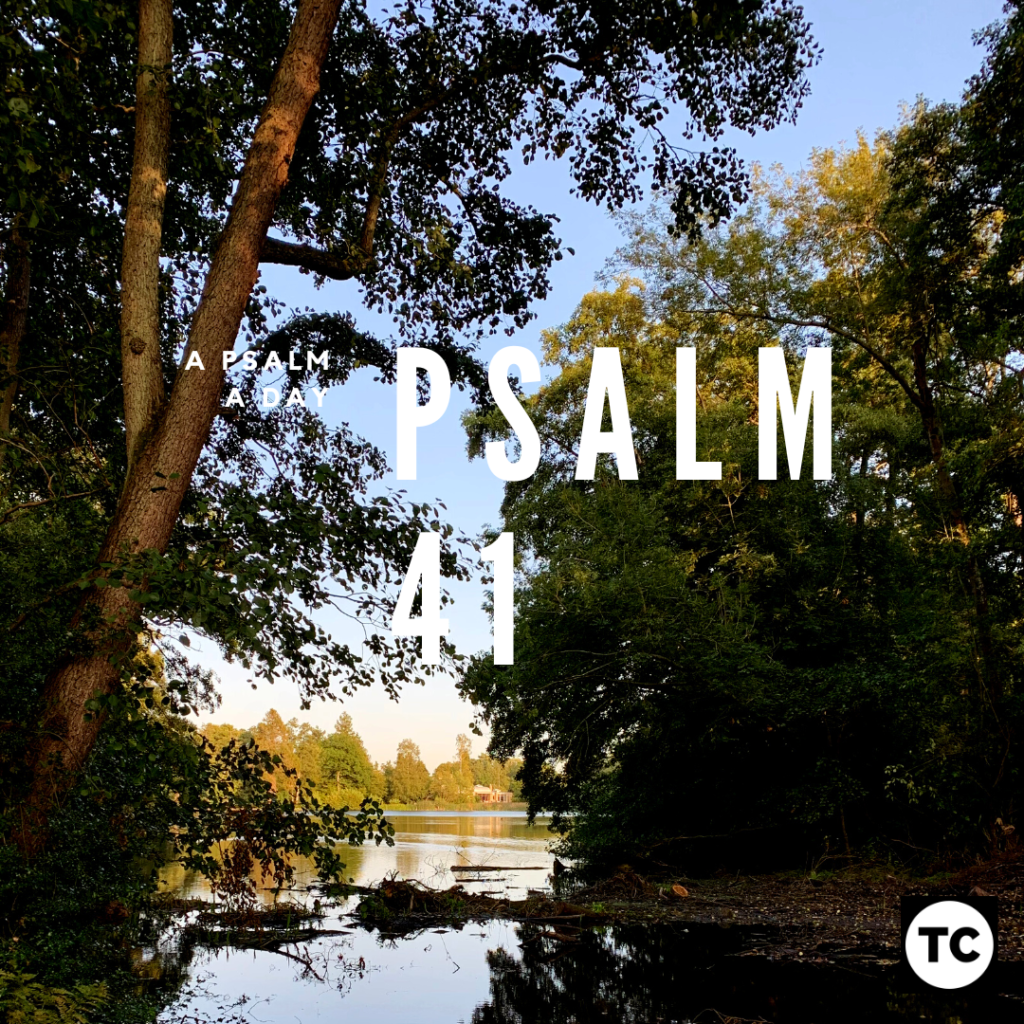Throughout September 2022, I managed to read and reflect – briefly – on a Psalm each day. For December 2022, I’m going to pick up the discipline. I’ll read the Psalm, pray, and then ponder a few questions:
- What is this Psalm about?
- What does this Psalm teach about God?
- How does this Psalm connect to God’s people today?
I’ll close the post with a simple prayer, trying to draw the themes together.

On the thirteenth of December, here’s Psalm 41:
1 Blessed are those who have regard for the weak;
the Lord delivers them in times of trouble.
2 The Lord protects and preserves them—
they are counted among the blessed in the land—
he does not give them over to the desire of their foes.
3 The Lord sustains them on their sickbed
and restores them from their bed of illness.
4 I said, “Have mercy on me, Lord;
heal me, for I have sinned against you.”
5 My enemies say of me in malice,
“When will he die and his name perish?”
6 When one of them comes to see me,
he speaks falsely, while his heart gathers slander;
then he goes out and spreads it around.
7 All my enemies whisper together against me;
they imagine the worst for me, saying,
8 “A vile disease has afflicted him;
he will never get up from the place where he lies.”
9 Even my close friend,
someone I trusted,
one who shared my bread,
has turned against me.
10 But may you have mercy on me, Lord;
raise me up, that I may repay them.
11 I know that you are pleased with me,
for my enemy does not triumph over me.
12 Because of my integrity you uphold me
and set me in your presence forever.
13 Praise be to the Lord, the God of Israel,
from everlasting to everlasting.
Amen and Amen.
What is this Psalm about?
This Psalm continues the story behind some of these Psalms – likely originating with David, the Psalm recounts God’s healing intervention, in spite of difficult circumstances.
What does this Psalm teach us about God?
Psalm 41 clearly teaches that God delivers (v1), protects and preserves (v2), and sustains and restores (v3) ‘those who have regard for the week’ (v1a). In this we see two things; firstly that God acts decisively, secondly that these acts are for particular people. The complaint in the central part of the Psalm – and the plea for mercy in verse 10 – implies that not everyone recieves the same from God. Indeed, verse 11 shows that God can be pleased with some people. Finally, concluding the Psalm, we see that God is ‘the God of Israel’, and eternal, and to be praised.
How does this Psalm connect to God’s people today?
Writing in a cold snap, at the edge of a financial crisis, with ill children, a war in Europe, and a myriad of things that could be seen as pointing to being ‘troubling times’, Psalm 41 brings a challenge: ‘have regard for the weak’. Whenever our own lives are under strain, it is easy to ignore the poor, to forget the broken-hearted, and to use our own strength for ourselves. But that is the opposite of what we should do as the people of God. Given the narrative of this Psalm, I wonder, too, if there is an important reminder that this world is not all there is, and that even people who appear to be friendly, may not be. There is an encouragement – mediated through that first challenge to ‘have regard for the weak’, in particular – to focus on God in praise and lifestyle.
A prayer drawn from Psalm 41:
Leave a Reply